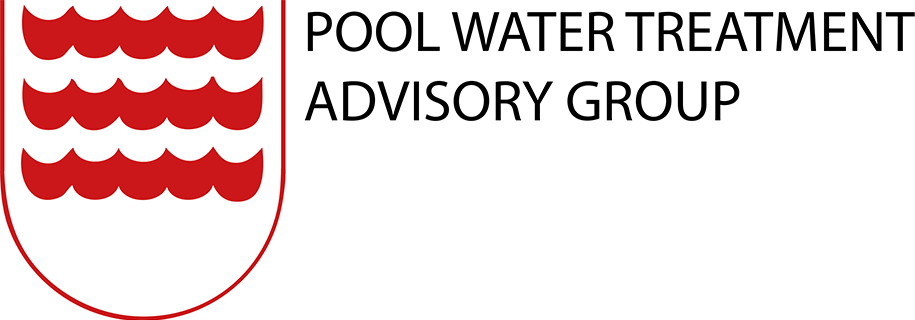Sharing experience and knowledge in the Covid-19 era
PWTAG’s first conference online ran as smoothly as the deadly virus which was its subject. It was an ambitious programme: reports and research from across Europe and the US. And an ambitious format: presented live (much of it recorded in advance but taking questions live) with paper sessions and live interactive workshops run in parallel – and a live ask-theexperts session at the end. With an hour of virtual sponsors’ rooms before the 9.30 start and a 6 pm finish, it was a pretty full-on day. Good value for money definitely. And £40 can still buy you access to all 14 papers and other reports.
The overall message was clear and one hopes unsurprising. Yes, pools can run safely despite covid, provided disinfection etc are scrupulously attended to and particular care taken with ventilation, hygiene and distancing. Aerosols are the big threat, as everywhere.
Some highlights
In the US, CDC’s Model Aquatic Health Code is a surprisingly democratic affair. Subscribers get to vote on contentious issues. This year’s MAHC update is the subject of controversy on such issues as cyanurates and swimming ponds.
Talking of cyanurates, the MAHC’s specialist on it, Richard Falk, emphasised the importance of controlling its ratio with free chlorine. It got complicated, but the bottom line (covid in faeces) was a risk of about 1 in 180 million
Professor Spica’s paper on the Italian experience (no pool-related outbreaks) had 70 covid references from 2020/21 – none from the UK.
The news from Austria was a revelation. Legislation dictates filtration, dye testing, chlorine residuals, pH, redox – and a 4-log reduction of Pseudomonas aeruginosa within 30 seconds. They favour process control to end-product control.
Dutch researchers have a very direct approach. Jan Bakker observed, covid tested and health checked swimmers. The only problem was the misbehaviour of young swimmers. This despite disinfection issues, including high chlorate. Maarten Keuten’s team measured aerosols directly. Recreational equipment could quadruple aerosol levels; upping outside air and fan speed could half it again.
Christiane Holler reported on the political pressures to reopen pools in Bavaria: when they did, in June last year, distancing was difficult to enforce and there were two covid cases linked to a spa. Greece was challenging too. Athena Mavridou and colleagues surveyed pool managers: half found hygiene measures difficult to apply and had often failed to install screens.
Two UK outfits – Cundall and Devin – looked into the future. Passive house seem to be bywords: a carbon-neutral pool is set to open in Exeter. Ceramic filters tick most of the boxes, though beware misleading claims about plantroom space.
Q&A
Between sessions and at the end there was a never-ending queue of eager questioners. No embarrassing gaps and much fascinating debate.
- Michele Hlvasa’s presentation on COVID-19 and model aquatic health code developments
- Vincenzo Romano Spica’s presentation on Is it safe to swim in the time of COVID-19?
- Regina Sommer’s presentation on Does the COVID-19 pandemic require changes in pool water disinfection now and in the future?
- Richard Falk’s presentation on Risk of illness in stabilized chlorine pools
- Susanne Lee’s presentation on Water management plans and pool safety moving forward
- Jan Bakker’s presentation on The Dutch approach to swimming and spa pools in times of COVID-19: health monitoring
- Christine Hoeller’s presentation on Pools and spas in Bavaria during the COVID pandemic
- Maarten Keuten’s presentation on Results of a study on aerosols in swimming pools
- Tom Devin’s presentation on Water treatment design for COVID-19 and beyond
For a reminder of the event structure please click here to download the full programme and speaker abstracts.
Click the names to read their abstracts.
Michele Hlavsa,
Epidemiologist, Healthy Swimming and Cryptosporidiosis Waterborne Disease Prevention Branch, Centers for Disease Control & Prevention, Atlanta, Georgia
Covid-19 and Model Aquatic Health Code developments
Vincenzo Romano Spica,
University of Rome
Is it safe to swim in the time of Covid-19?
Regina Sommer,
Medical University of Vienna
Does the Covid-19 pandemic require changes in pool water disinfection now and in the future?
Richard Falk
Council for the Model Aquatic Health Code Ad-Hoc Committee, Decatur, Georgia
Risk of illness in stabilized chlorine pools
Susanne Lee,
Leegionella Ltd,
Water management plans and pool safety
Jan Bakker
Institute of Occupational Diseases University of Amsterdam,
The Dutch approach to swimming and spa pools in times of Covid-19: health monitoring.
Sarah Wratten,
Aquatic Therapy Clinical Specialist Physiotherapist and Consultant, ATACP Co-Chair and Tutor
Working in hydrotherapy pools during the Covid-19 pandemic
Christiane Höller
Bavarian Food and Health Authority Oberschleißheim
Pools and spas in Bavaria during the Covid pandemic
Emanuele Ferretti and Lucia Bonadonna
Italian National Institute of Health, Rome
National Guidelines and health issues in the swimming pool during the Covid-19 pandemic
Athena Mavridou
University of West Attica, Greece
Manager feedback on the application of Covid-19 swimming pool regulations
Maarten Keuten
Delft University of Technology, Department of Water management
Results of a study on aerosols in swimming pools
Tomas Neeson and Kevin Hannah
Cundall
Pool ventilation – balancing nett zero and Covid-19 considerations
Tom Devin
Devin Consulting
Water treatment design for Covid-19 and beyond
Alex Blackwell and Hannah Smith
Water Babies Ltd
Making Baby Swimming Lessons Covid-19 Safe – The Challenges
PWTAG reserves the right to alter speakers and/or titles of papers if circumstances dictate.
We would like to thank our sponsors for their support of the conference. You can find out more information about them here:
